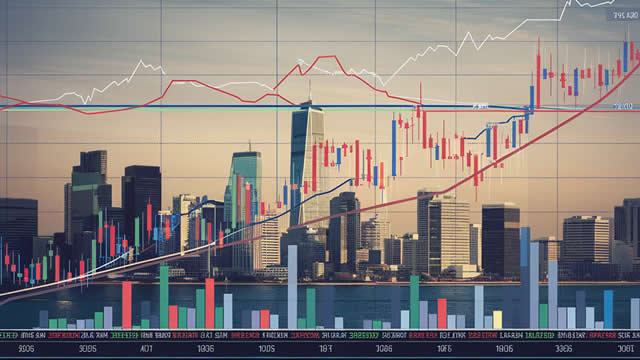The Rollercoaster Ride of GBP/USD Exchange Rate: A Peek into Bank of America’s Insights
In the ever-changing world of currency exchange, the GBP/USD exchange rate has been making headlines lately. After a tumultuous few months, the rate has finally settled below the 1.3000 level. But what does this mean for us, dear readers, and for the world at large? Let’s take a closer look at Bank of America’s perspective on this.
A Near-Term Slide Towards 1.26
First things first, the bad news. According to Bank of America, there’s a risk of a near-term slide towards 1.26. Why, you ask? Trade fears are the main culprit. With tensions between the US and China continuing to simmer, investors are becoming increasingly risk-averse. This uncertainty is causing them to sell off the Pound and buy the Dollar, driving down the GBP/USD exchange rate.
But Wait, There’s More!
Now, for some good news. Despite this near-term outlook, Bank of America remains bullish on the medium-term outlook. Why, you ask? The Pound’s solid performance is one reason. The UK economy has been showing signs of resilience, despite the challenges posed by Brexit. This strength is likely to continue, keeping the Pound afloat.
Sustained Dollar Losses
Another factor contributing to Bank of America’s bullishness is the sustained dollar losses. The US economy has been slowing down, leading to concerns about a potential recession. This, in turn, has caused investors to sell off the Dollar, making other currencies, like the Pound, more attractive.
What Does This Mean for Me?
If you’re planning a trip to the UK or have investments in British assets, this news might have you feeling a bit uneasy. After all, a lower GBP/USD exchange rate means your Pounds will buy fewer Dollars. However, it’s important to remember that exchange rates are just one piece of the puzzle. The strength of the UK economy and the value of your specific assets will also play a role in determining the impact on you.
And the World?
A lower GBP/USD exchange rate can have far-reaching implications. For instance, it can make UK exports more competitive on the global market. At the same time, it can make imports more expensive, potentially leading to inflation. Additionally, it can impact global financial flows, as investors may reallocate their portfolios in response to the changing exchange rate.
In Conclusion
The GBP/USD exchange rate is just one of many factors that can impact our personal finances and the global economy. While it’s important to stay informed about such developments, it’s equally important to remember that exchange rates are just one piece of the puzzle. By keeping a long-term perspective and staying informed about economic trends, we can navigate the ups and downs of the currency market with confidence.
- Exchange rates, like the GBP/USD, can have significant implications for individuals and the world.
- Bank of America sees a risk of a near-term slide towards 1.26 due to trade fears.
- However, the bank remains bullish on the medium-term outlook due to the Pound’s solid performance and sustained dollar losses.
- A lower GBP/USD exchange rate can make UK exports more competitive and lead to inflation.
- It’s important to stay informed about economic trends and keep a long-term perspective.





